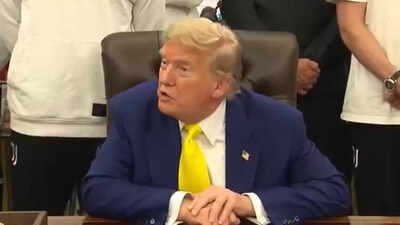ARTICLE AD BOX

US President Donald Trump
US President Donald Trump's latest legislative push aims to significantly incentivise semiconductor manufacturers to build plants in the country, further bolstering Washington's efforts to strengthen its domestic chip supply chain. The bill, which the Senate passed on Tuesday (July 1), proposes increasing tax credits for eligible semiconductor firms from 25% to 35%. This marks an even larger increase than the 30% that appeared in a prior draft. Chipmakers like
Intel
, Taiwan Semiconductor Manufacturing Company (
TSMC
) and Micron Technology may all benefit from these enhanced credits, provided they expand their advanced manufacturing capabilities in the US before a 2026 deadline. It is to be noted that these new provisions build upon the existing tax incentives established by the 2022 CHIPS and Science Act, which included $39 billion in grants and $75 billion in loans for US-based semiconductor manufacturing projects.
Trump's approach to chips: Beyond CHIPS Act grants
Since his first term, Trump has pursued policies to bring more of the advanced semiconductor supply chain back from Asia, bolster domestic players and curb China's technological capabilities. While the tax provisions in his new bill expand on those in the Biden administration's CHIPS Act, Trump's overall strategy for the semiconductor industry has diverged.
Earlier this year, the President even called for a repeal of the CHIPS Act, though Republican lawmakers have shown reluctance to act on that front. Nonetheless, US Commerce Secretary Howard Lutnick recently indicated that the administration is renegotiating some of the Biden administration’s existing grants.In recent months, several major chipmakers with US projects have ramped up their planned investments in the country, including TSMC, Nvidia, Micron and GlobalFoundries.



.png)
.png)
.png)
















 9 hours ago
4
9 hours ago
4









 English (US) ·
English (US) ·